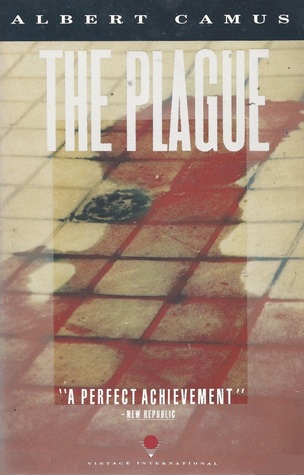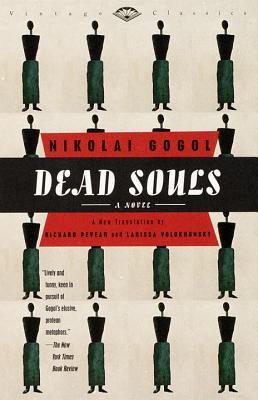Last month, I wrote an article recommending seven classics by British authors as good places to start reading classic literature. Don’t worry; there won’t be an exam! I do hope you felt inspired to pick up one or two of those wonderful novels and enjoy them.
Now here are seven classics not originally written in English. I am a firm believer in reading classic literature from every part of the world and getting to know other cultures through what they read, but it can be difficult to know where to start. Everyone knows that Russian classics such as War and Peace and French classics such as Les Miserables are long and dense, and you are not alone if they have intimidated you into avoiding Russian and French literature altogether. (They are utterly amazing, though, and I promise that reading them isn’t as unattainable as you may think!) However, the books I have chosen for this list are shorter, relatively easy to read, and downright fun.
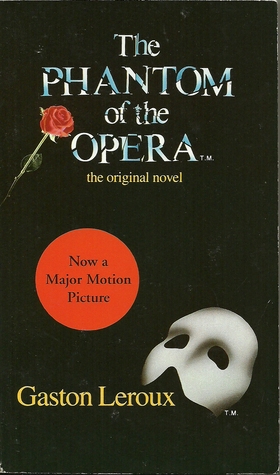 The Phantom of the Opera, by Gaston Leroux
The Phantom of the Opera, by Gaston Leroux
I know what you’re thinking. “Isn’t that a musical?” Yes, it’s a fantastic musical. But the book the musical is based on is just as fantastic and has the added bonuses of extra characters (The Persian being cut out of the story in the musical is a travesty), higher stakes (Raoul isn’t told to “hold up your hand to the level of your eyes” for nothing), and the conviction that the entire thing actually happened (Leroux swears in the Prologue that he did his research and it’s a true story, and he makes you believe it). I’m a huge fan of French literature, so huge that it’s my minor here at Athabasca, and I always recommend The Phantom of the Opera to anyone who wants to read French literature but doesn’t know where to start.
Synopsis: Christine Daae is just a background dancer at a French opera house, until a mysterious voice begins giving her singing lessons and arranging events at the opera house, often quite violently, to raise her status to diva. Is this disembodied voice really the Angel of Music that her late father promised to send her from Heaven when he died? Or is it a Phantom that haunts the opera house? Originally published in French in 1909; translated by Alexander Teixeira de Mattos.
It may seem a little bit on-the-nose to recommend a book about a plague during a pandemic, but I would have recommended this book whether we could all relate to it on that level or not. It is one of the most gripping and beautifully written books I have ever read; in a review I wrote for this book shortly after reading it, I described it as “agonizingly beautiful.” I read it quite a few years ago, but those who have read it in the time of COVID-19 have marvelled at Camus’ insight into the way human beings behave during a lengthy quarantine. However, it is chiefly a story about the resilience of the human spirit.
Synopsis: An outbreak of the bubonic plague in a North African town brings out the best and the worst in the town’s inhabitants. Originally published in French in 1949; translated by Stuart Gilbert.
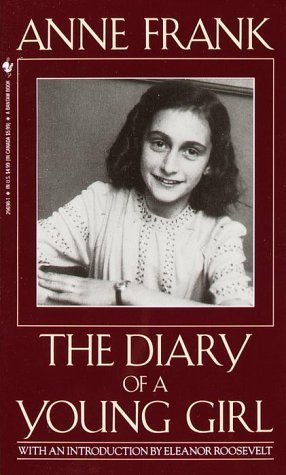 The Diary of a Young Girl, by Anne Frank
The Diary of a Young Girl, by Anne Frank
It may seem strange to include a nonfiction title in this list, and one written by a child at that, but this is a life-changing, must-read book. I’m sure you know the story of Anne Frank, but have you read it in her own words? She was an eloquent young lady who deserved to have a voice in this world and to be remembered for generations. With all the current political unrest and most of us having experienced lockdown (to a less drastic degree), this book may move you now in ways it couldn’t have done just months ago.
Synopsis: While hidden away with her family in a secret annex during the Nazi occupation of Holland, a young Jewish girl with big dreams of being a writer keeps a diary of her hopes and fears, her experiences and perceptions, her joys and sorrows. Originally published in German in 1947; translated by B.M. Mooyaart-Doubleday.
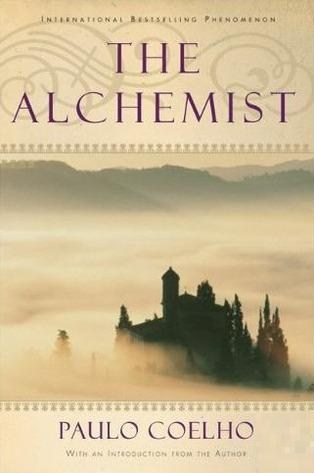 The Alchemist, by Paulo Coelho
The Alchemist, by Paulo Coelho
I don’t usually consider books less than fifty years old to be classics, but for The Alchemist I will make an exception. This book was destined to be a classic from the moment it was published. It is disappointingly short, but packed full of philosophical and spiritual insights and wisdom that will blow your mind with their effortless simplicity. However, if you read it as a novel, you will probably wonder what all the fuss is about. The story is an allegory, almost a fairy tale, and should be read with that in mind.
Synopsis: Santiago, an Andalusian shepherd boy, sets off on a quest for treasure and meets many interesting characters along the way who guide him on his path to his true destiny and the fulfillment of his dream. Originally published in Portuguese in 1988; translated by Alan R. Clarke.
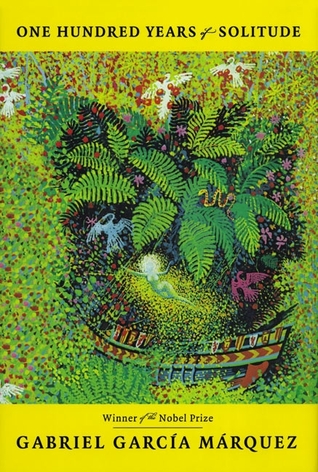 One Hundred Years of Solitude, by Gabriel García Márquez
One Hundred Years of Solitude, by Gabriel García Márquez
This book was my introduction to magical realism (a fiction genre in which strange, supernatural elements are added to otherwise realistic settings), and I’m here to say that it should be yours, too. Don’t be fooled by the title; the “solitude” here is mostly geographical (a town cut off from the cultural progress of the rest of the world) and perhaps metaphorical. This novel is full of colourful characters and entertaining storylines, and, while at times the similar names of some of the characters can be a bit confusing, it is well worth the effort. This book is considered one of the greatest literary masterpieces of the world for a reason.
Synopsis: Macondo is a utopian city almost frozen in time by its isolation from the rest of the world, until the day that the railroad arrives. The story follows one family through multiple cyclical generations as the world begins to intrude on Macondo. Originally published in Spanish in 1967; translated by Gregory Rabassa.
This is another book in the category of “don’t judge a book by its title.” Believe it or not, Dead Souls is a comedy! It comments on and satirizes the Russian practice of landowners buying and selling the “souls” of serfs who farmed their land, and it does so with more wit and humour than one typically expects from a Russian classic. Unfortunately, the second part of this novel was never completed, but that shouldn’t deter you from reading and enjoying the first part. This book is a perfect introduction to the wonderful world of Russian literature.
Synopsis: A mysterious man named Chichikov arrives in a small town and attempts to buy the names of dead serfs, “dead souls,” from landowners who are tired of paying taxes on serfs who have not yet officially been declared dead by the census takers. But what use could they possibly be to him? Originally published in Russian in 1842; translated by Robert A. Maguire.
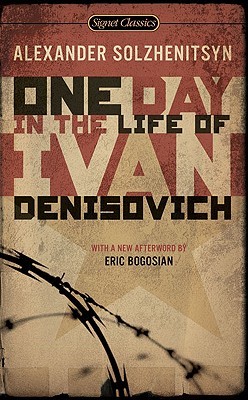 One Day in the Life of Ivan Denisovitch, by Aleksandr Solzhenitsyn
One Day in the Life of Ivan Denisovitch, by Aleksandr Solzhenitsyn
If you feel you’re ready to dip your toes into the deeper, darker side of Russian literature, this would be a good place to start. It’s short, which is rare for Russian classics, but packs a powerful punch. Solzhenitsyn wrote this book shortly after being released from a Russian gulag, or forced-labour prison camp, and his vivid and engaging writing brought awareness, criticism, and ultimately the end of the gulag system.
Synopsis: An in-depth account of 24 hours in the life of an inmate of one of Stalin’s forced-labour camps. Originally published in Russian in 1962; translated by H.T. Willetts.
